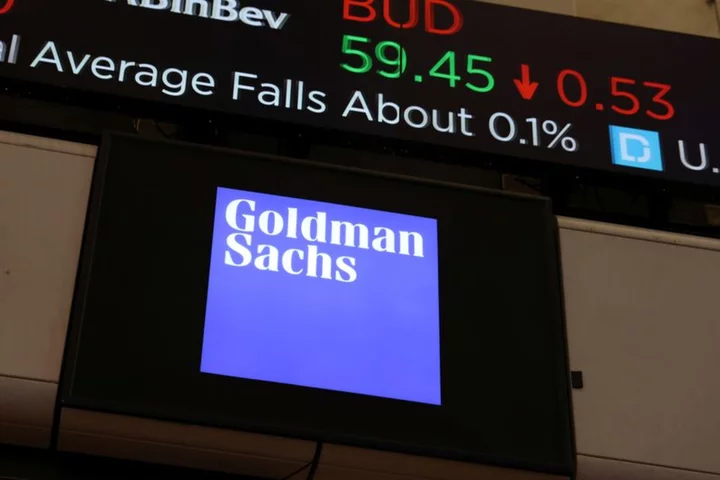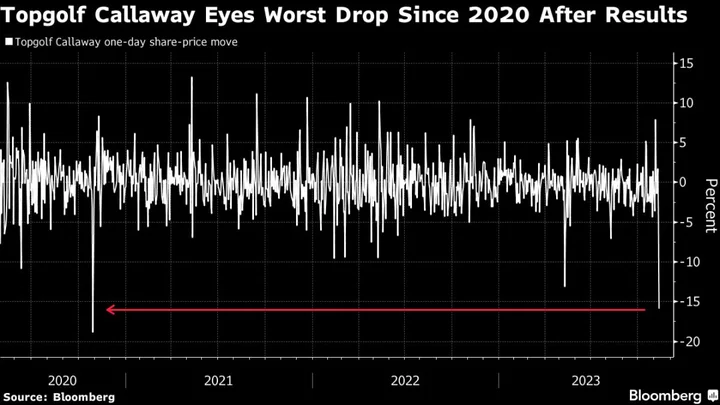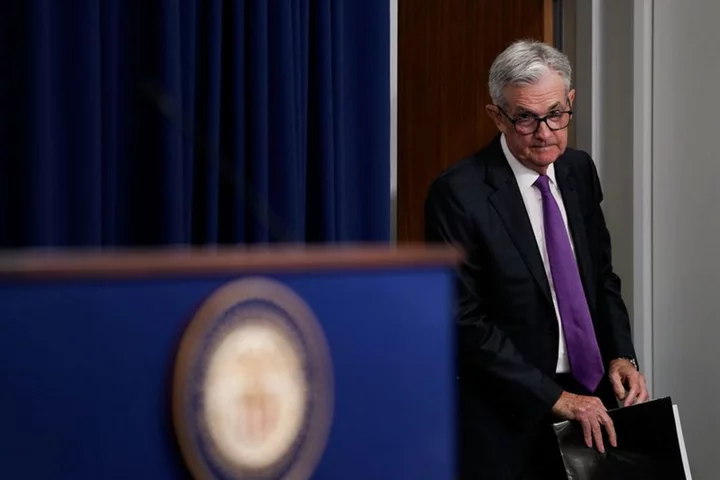By Libby George, Patrick Werr and Marc Jones
LONDON/CAIRO (Reuters) -Egypt's government bonds fought back from an initial heavy tumble on Friday after Moody's had downgraded the country's credit rating to a new low and the head of the IMF had warned Cairo against delaying another currency devaluation.
Moody's, which had been eyeing up a possible downgrade for months, concluded the process late on Thursday by cutting it one notch into the 'substantial risk' Caa1 bracket which is seven rungs into 'junk' territory.
The rating firm had cited the country's worsening debt problems amid a bruising economic crisis that has triggered a string of devaluations, record inflation and more of its citizens to seek risky routes out of the country.
The initial market reaction saw some of the government's international bonds, which are denominated in dollars, fall nearly 3 cents to their lowest levels since May before a rebound started and left most down just 0.2-0.5 cents.
Responding to the Moody's cut, Egyptian Finance Minister Mohamed Maait said in a statement that the government was undertaking structural reforms to address its economic challenges and taking measures to stimulate investment.
He added that Egypt had contained spending in the financial year that ended in June, despite the knock-on effects from the war in Ukraine that have included driving up prices of key imports like fuel and some food.
The country has repeatedly devalued its currency since last March leaving it at half its former value. But on Thursday, International Monetary Fund (IMF) Director Kristalina Georgieva told Bloomberg that it would continue to "bleed" reserves unless it does so again.
"There is still some work to be done on the question of how best to allow the exchange rate to move," Georgieva said in a separate interview with Al Arabiya TV, adding that it was still possible for the IMF to conduct a delayed first review of its latest $3 billion programme with Egypt by the end of the year.
FINANCING GAP
Analysts at JPMorgan said the timing of Moody's downgrade had come as a bit of a surprise, given that it was well within a 90-day review period Moody's had given itself to decide.
There could be more too. Moody's grade is now two notches below those of S&P Global and Fitch. S&P's next review though is in two weeks time on Oct 20 followed by Fitch on Nov 3. Both have 'negative outlooks' - effectively downgrade warnings - on their ratings.
COVID-19 hammered Egypt's key tourism industry and this year's recovery has been offset by the surge in global interest rates which has left its external loans, which quadrupled to over $160 billion in the seven years to 2022, harder to manage.
"Given the little progress on the IMF program review front, FX pressures and the upcoming elections along with the recent global risk off environment, we believe Egypt sovereign bonds will continue to remain under pressure," JPMorgan's analysts said.
At least two Egyptian banks suspended use of pound debit cards abroad this week to stem the forex drain, and more are expected to follow suit.
Egypt's IMF bailout is contingent on letting the currency float and selling state assets. But asset sales have been slow, and leaders are reluctant to devalue the pound, potentially invoking public ire, before the presidential election .
Economists said the downgrade and Georgieva's comments would make it tougher to attract cash into the country in the short term.
"The delays to the IMF reviews and the rating downgrade raise further concerns over Egypt's large external financing gap," Monica Malik, chief economist at Abu Dhabi Commercial Bank, told Reuters.
"Significant and broad-based reforms will be needed to raise investor confidence and capital inflows."
Some also warned that the downgrade could force some investors to sell the bonds they hold. That could drive up local borrowing costs and amplify the fiscal deficit. Such a move could also damage capital adequacy ratios for local banks.
(Reporting by Libby George in London and Patrick Werr in Cairo; Additional reporting by Aidan Lewis and Ahmed Tolba; Editing by Karin Strohecker, Sharon Singleton and Toby Chopra)









